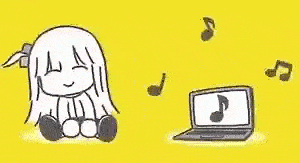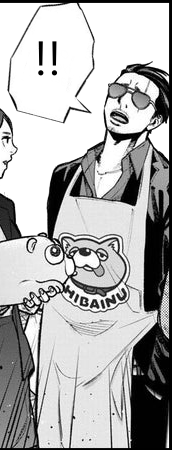To Do
One of the pleasures of the teaching exercise is that, more often than not, the conundrums I face are not about teaching physics per se, but the idea of solving a riddle or further knowledge itself, the 'learning to learn' perspective of understanding. We are, and will be, surrounded by a lush forest of puzzles that stretch to the horizon and beyond. Our feet tire, we will never see all of them. But we do not set our sights in solving all that there is to solve, do we? (some try, I personally cannot recommend it) We fix what's put in front of us to solve, or those that require solving, and if we can choose, those that interest us the most. Physics as a teachable field is a fun toy in that regard: we are surrounded by it, and each toy we disassemble teach immediate mechanisms of the world that both the toy and us inhabit, and sometimes deeper stuff, like 'no movement comes from nothing', aphorisms better licked for years.
Disassembling (and reassembling) the toy is a compelling task not only for the knowledge it unravels. It is *fun*. Trying things is fun. Changing the small plastic wheels from the car and replacing them with bottle caps and see it go (if it goes!) is a fun process. The act of exercising our will on the world with our grubby little hands is innately engaging because we are creatures that rot in stasis (like everything, eventually). We gotta do.
When I teach physics, I begin every year with the metaphor of the toolkit. I am giving you a set of tools for your toolbox. We swing the hammer together a few times, flatten a nail or two. Once you are barely comfortable with the basic movements, I give you a blueprint, wood and nails. Now I want you to show me how you do this, documenting every step of the way. In the way we have developed a method to tackle these sorta problems, but most of all I'm interested in trying to convey the joy of the craft. Imagining an object and calculating things about them can be a good time. There is joy in crafting simulations in our minds of situations that then inform how we understand the world in which those simulations are based on! There is a feedback loop of understanding and amusement. We have a great time with the toy, as we do, the silly monkeys we are.
Very often in discussions that are related to the value of doing -not only in the worn yet present talk about LLMs, but also comparing for instance a trade with a managerial position- I don't see a single word about one of, if not the most important part of a process.
What we do, needs us doing it, and as we do, we become what we remember we did. We then share with others what we do, not only in product, but in memory and connection. We often do things with others, and that also becomes a memory and a connection. The things we did, and how we did them, and where we did them and when, shape us and the world around us from that point forward.
Imagine two potters. One has only ever shared a handful of very finely crafted works of art, proudly standing in a visible place of their living room. Their house is tidy. When asked, they politely evade the question, refusing to go into the process or show you it. The other's house is a mess of broken vases. You have come to associate the smell of wet clay to them (they are now "The Clay Person" in your life) When you come in they apologize for the mess, then go in a long tangent about a new pottery project they have been playing with. You don't mind much, but you find it cute.
Then, imagine having some small talk with them separately. With some luck, you'd have different kinds of a positive time in both cases.
Now imagine the first potter revealing to you that they did not actually make the pots, and instead got them ready made from a factory. And when confronted with the dissonance of calling themself a potter, they'll say "Ah yes, I did *some* pottery. I could *easily* make *these*, but why bother?" then going on a tangent about anyone ever trying to make something instead of simply getting the final result, hassle free, hands clean. They tell you this in the living room of their plastic home, and they have gone to insane lengths to be no one at all.
I won't go further into the terminal capitalism angle of this. But it astounds me how much effort is poured into delegitimizing the idea of doing in a world where we have the most power ever over our surroundings. It has *never* been easier to connect with others and do things together, than this very moment in history. Engaging honestly and being a bit vulnerable has never costed less in economic or social capital. Yet many people spend so, so much of themselves widening moats instead of building (or at the very least not tearing down!) bridges. Glorifying the consumable and exalting the act of exaltation, of elevating the perfect shape to the top of a pedestal in a dead forest of fake marble.
There are things we cannot help but do, like being born or pawn off our lives for food and shelter. The rest is in our hands. Do. Share memories. Make connections. What you do doesn't have to be 'good' to be shared with others (I don't think this manuscript is perfect either!) I promise you that you will have some good fun, as I did writing this. Thanks for reading.
 ~ where cinders lie ~
~ where cinders lie ~




